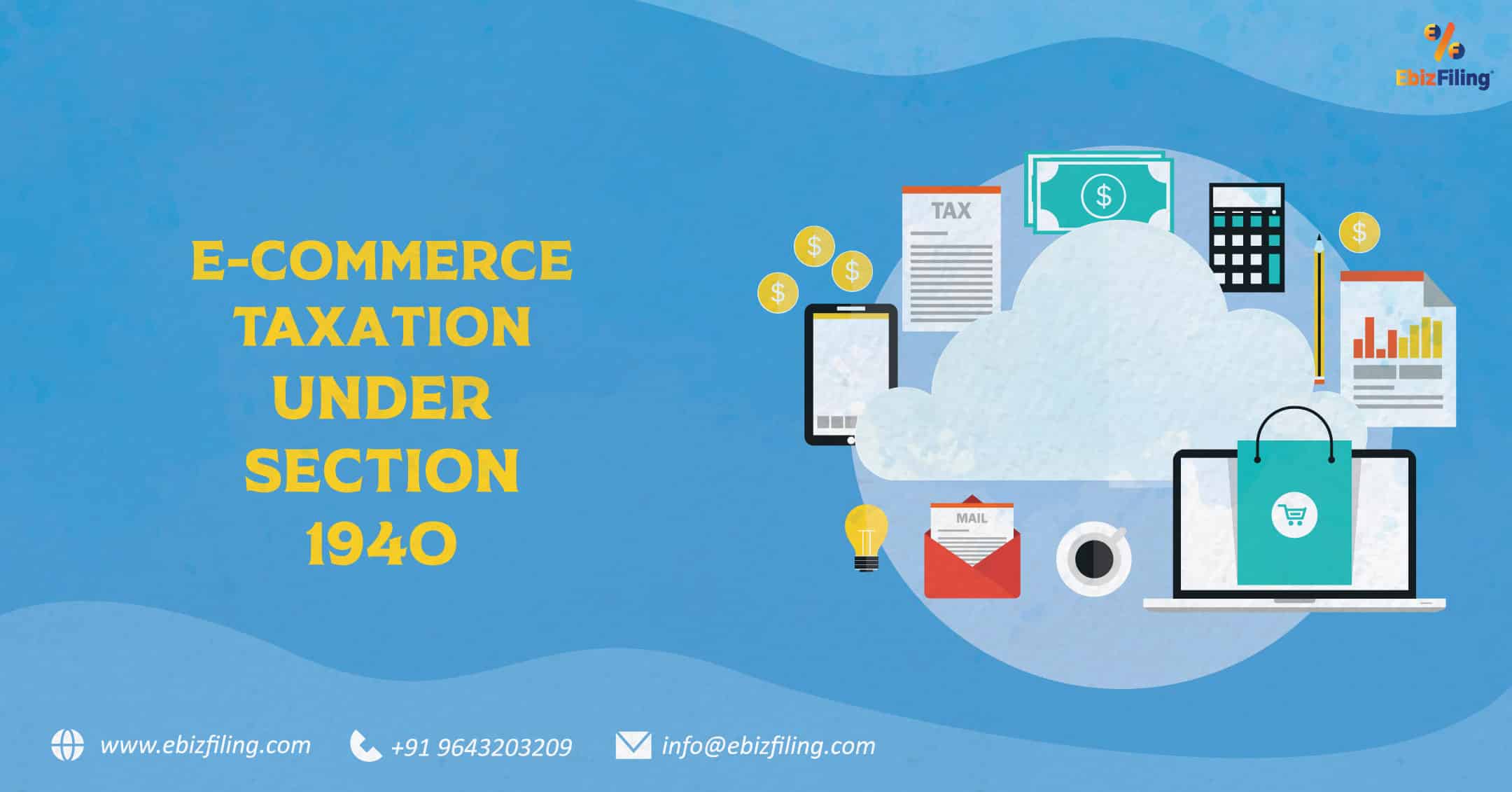
-
July 14, 2025
E-commerce taxation in India and Scope of Section 194O of the Income Tax Act
Introduction
Do you know that there was no tax on e-commerce businesses at first? As a result, non-resident e-commerce operators made profits in India without paying any taxes. As a result, the government implemented the provisions under Section 194O of the Income Tax Act for E-commerce businesses in the Income Tax and GST. This article will help you with the information on the scope of Section 194O, and GST Compliances for E-commerce business.
Useful insights on E-Commerce business in India
E-commerce, also known as electronic commerce or internet commerce, refers to the purchase and sale of goods or services over the internet, as well as the transfer of money and data to complete these transactions. E-commerce is frequently used to refer to the online sale of physical products, but it can also refer to any type of commercial transaction that is facilitated by the internet. Whereas e-commerce covers all aspects of running an online business, e-commerce is solely concerned with the exchange of goods and services.
E-commerce taxation under Section 194O of the Income Tax Act
E-commerce operators must deduct 1% TDS on the gross amount of sales or services or both when crediting the amount of sale of goods, services, or both to an e-commerce participant’s account or making payment to an e-Commerce participant by any other mode, whichever is earlier.
Let us illustrate this with an example. If there are INR 30 lacs in sales and INR 5 lacs in sales returns, TDS should be deducted at 1% on the INR 30 lacs and not on the INR 25 lacs.
Scope of Section 194O on E-commerce taxation business
-
Participant in e-commerce who is a resident individual or HUF
The e-commerce operator is not needed to deduct TDS if the gross amount of sales of products, services, or both during the previous year did not exceed INR 5 lakh and the participant has provided his PAN or Aadhaar. If an e-Commerce participant fails to provide his Permanent Account Number (PAN) or Aadhaar, TDS (Tax Deducted at Source) at the rate of 5% is required under Section 206AA.
-
If an e-commerce participant is a Non-resident Indian
As previously stated, e-Commerce participants must be Indian citizens. As a result, no TDS will be deducted if the participant is a non-resident. For example, a proprietary company ABC (an e-commerce participant) sells its products on Amazon (an e-commerce operator). On December 1, 2022, Mr X purchases this product online from VBC for INR 50,000.
Amazon credits ABC’s account on December 1, 2022, but the customer pays ABC directly on December 15, 2022. Amazon is required to deduct TDS at 1% on INR 50,000 when crediting the party or making payment, whichever comes first. TDS should be deducted in this case on December 1, 2022.
GST Compliances for E-commerce business
-
Section 52 of the CGST (Central Goods and Service Tax) Act
Every electronic commerce operator shall collect an amount calculated at a rate not exceeding 1% of the net value of taxable supplies made through it by other suppliers where the consideration for such supplies is to be collected by the operator. According to the Explanation, “net value of taxable supplies” means the taxable supplies returned to suppliers are subtracted from the gross value of taxable supplies. The following table contains all tax-related and due-date information:
|
Limits |
There is no such limit |
|
Liability to collect tax |
E-commerce business operator |
|
Rate |
0.5% of the net value of taxable supplies as CGST and SGST, respectively (Intra-State Sale) IGST of 1% of the net value of taxable supplies (Inter-State Sale) |
|
Payment of TCS |
Within 10 days of the month in which TCS was collected |
|
Due Date for monthly statement filing |
Within 10 days of the end of the month in which TCS was collected |
|
Due date for annual statement filing |
On or before the 31st of December following the end of such financial year |
Conclusion
There are numerous taxation provisions affecting E-Commerce transactions in both Income Tax and GST. The government is introducing new sections in both taxation regimes, Direct and Indirect Tax, in order to avoid non-taxation of transactions and obtain tax benefits.
File TDS Returns
Quickly file error-free TDS Returns with EbizFiling
About Ebizfiling -










Reviews
Kavya Talada
29 Mar 2022Private company incorporation was done by ebizfiling I really thank the entire team for giving best service and with affordable price.. I have inquired many firms but ebizfiling is the best service
Nayanshree Barsaiyan
08 Jul 2019My requirement was fulfilled on time. the customer care response is very prompt.
Ajit Gopal Pandit
20 Feb 2018Very efficient service to get yourself registered with your Business. Had a very good experience.
February 20, 2026 By Steffy A
Best Income Tax Software for Indian Taxpayers Introduction Filing Income Tax Returns (ITR) is a mandatory annual task for Indian taxpayers and often a stressful one. As per the Income Tax e-filing portal guidelines, taxpayers must submit their ITR […]
February 14, 2026 By Steffy A
Income Tax Rules 2026: Major Renumbering of Income Tax Forms Explained Introduction The Income Tax Rules 2026 mark one of the biggest structural changes in India’s tax compliance system in recent years. From April 1, 2026, taxpayers and professionals will […]
January 31, 2026 By Dhruvi D
Preparing and Filing Federal Tax Returns for US Taxpayers Introduction Filing federal tax returns is a yearly responsibility that many US taxpayers find stressful. The process often feels complicated because it involves multiple forms, deadlines, and rules that change […]